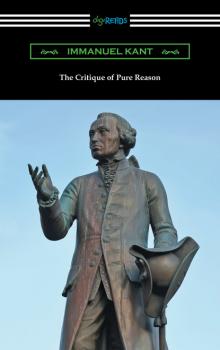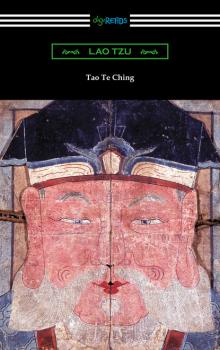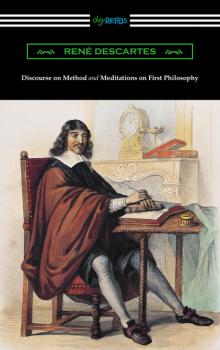ТОП просматриваемых книг сайта:
Афоризмы и цитаты
Различные книги в жанре Афоризмы и цитаты, доступные для чтения и скачиванияАннотация
First published in 1882 and revised in 1887, “The Gay Science” was written at the peak of Nietzsche’s intellectual abilities. It includes a large number of poems and an appendix of songs, all written with the intent of encouraging freedom of the mind. With praise for the benefits of science, intellectual discipline, and skepticism, “The Gay Science” also exhibits an enthusiastic affirmation of life, drawing from the influence of the Provencal tradition. Nietzsche additionally explores the notion of power and the idea of eternal recurrence, though not in a systematic way. This work is noted for one of Nietzsche’s most famous quotations, “God is Dead”, a phrase which figuratively expresses the idea that the Enlightenment had killed the possibility for a rational belief in God by modern society. Described by the philosopher himself as “perhaps my most personal book”, this work is worthy of attention from anyone with an interest in moral philosophy and the most essential themes and views of Friedrich Nietzsche. This edition is follows the translation of Thomas Common, includes an introduction by Willard Huntington Wright, and a biographical afterword.
Аннотация
The 18th century German philosopher Immanuel Kant is widely considered as one the most important figures in modern philosophy. His fundamental arguments with regard to the fields of metaphysics, epistemology, ethics, political philosophy, and aesthetics, have been highly influential and form the basis for much of contemporary thought upon the subjects with which he was concerned. Kant believed that there were fundamental concepts that structured human experience, and that reason principally should guide one’s examination of these concepts. Considered one of Kant’s most important works, “The Critique of Pure Reason” is an exposition on humanity’s faculty for reason in general. First published in 1781, this work builds upon the works of Kant’s philosophical predecessors, notably the work of empiricists like John Locke and David Hume and of rationalists like Gottfried Wilhelm Leibniz. Among the principal contributions to philosophy forwarded in this work is the idea that knowledge is both a product of experience, or “a posteriori” and independent of it, or “a priori”. Additionally Kant argues that judgments may be “analytical”, that they are contained within their own premise, or “synthetic”, that they contribute something external to themselves. An enduringly influential work, “The Critique of Pure Reason” remains to this day as one of the most important works of Western philosophy. This edition is follows the translation of J. M. D. Meiklejohn and includes a biographical afterword.
Аннотация
Disappointed by the public reception to “A Treatise of Human Nature”, published anonymously between 1739 and 1740, David Hume decided to produce a shorter more polemic version of that work nearly ten years later. That revision, which was published in 1748, would be entitled “An Enquiry Concerning Human Understanding”. Dispensing with much of the extraneous material from the “Treatise”, Hume focuses on his more vital propositions in the “Enquiry”. Proceeding in incremental steps Hume discusses the following concepts: “The Different Species of Philosophy”, “The Origin of Ideas”, “The Association of Ideas”, “Sceptical Doubts Concerning the Operations of the Understanding”, “Sceptical Solution of These Doubts”, “Probability”, “The Idea of Necessary Connection”, “Liberty and Necessity”, “The Reason of Animals”, “Miracles”, “Of a Particular Providence and of a Future State”, and “The Academical or Sceptical Philosophy”. Widely considered a classic of modern philosophical literature, “An Enquiry Concerning Human Understanding” is Hume’s theory of knowledge which would influence thinkers both in his time and for generations to come. This edition includes an introduction by L. A. Selby-Bigge and a biographical afterword.
Twilight of the Idols and The Anti-Christ (Translated by Thomas Common with Introductions by Willard Huntington Wright) - Friedrich Nietzsche
Аннотация
One of the most controversial and inflammatory philosophers in western civilization, Friedrich Nietzsche summarized his extraordinary ideas in “The Twilight of the Idols.” Appropriately subtitled “How One Philosophizes with a Hammer,” this work is a polemic on many of the ideas of his day, especially what he describes as the ‘The Problem of Socrates’ and ‘The Four Great Errors.’ Through the process of self-deception Nietzsche discusses the tendency of man to confuse cause and effect. By examining the concepts of accountability and free will, as they relate to vice and morality, Nietzsche attacks the prevalent philosophical systems of his time. Written in just over a week, “The Twilight of the Idols,” prepares readers for the principles addressed in “The Anti-Christ.” Also written in 1888, it expands on Nietzsche’s blatant disagreements with institutional Christianity. Written to deliberately provoke the reader, Nietzsche’s philosophy is perhaps most shocking not in its frank negativity concerning nearly all aspects of humanity, but in the profound depth of its understanding of human nature and the optimism which subtly affirms the capabilities and possibilities of mankind. This edition is translated by Thomas Common, includes introductions by Willard Huntington Wright, and a biographical afterword.
Аннотация
The philosophy of utilitarianism can trace its origins back thousands of years to the ancient Chinese philosophy of logic attributed to the Mohist School. Today it is most famously associated with the 18th century English philosopher Jeremy Bentham, and his disciple John Stuart Mill. The basic principle of utilitarianism is that one’s actions should be guided towards outcomes that create the greatest good for the greatest numbers of people, or in other words towards the maximization of utility, or happiness. This simple guiding principle creates a host of challenging moral dilemmas. Arguably one of the most important political thinkers of the modern era, John Stuart’s Mill’s influence on Western civilization cannot be overstated. In his classic exposition “Utilitarianism”, first published as a series of three articles in “Fraser’s Magazine” in 1861, we are provided great insight into John Stuart Mill’s philosophical world view. This includes a biographical afterword.
Аннотация
A classic Chinese text dating from the 6th century BC, the “Tao Te Ching” or “Book of the Way” consists of 81 short poems that unfold the spiritual nature of Taoism, one of the ancient Chinese religions. In describing the universal life force implicit in all things, this work shows readers a path that teaches contentment and balance. The simple language of Lao Tzu’s manual on the art of living, essentially encourages being humble, temperate, and considerate in the face of life’s predicaments. The wisdom of being a part of the Tao leads to a serenity of spirit that improves all aspects of human life, from the demands of work and family, to the dealing with life’s joys and difficulties. An essential for the meditation of Taoists for thousands of years, the “Tao Te Ching” is as beneficial and informative as it is enduring. This edition is translated with commentary by James Legge.
Enchiridion (with a Selection from the Discourses) [Translated by George Long with an Introduction by T. W. Rolleston] - Epictetus
Аннотация
Greek-speaking philosopher Epictetus was born into slavery around 55 AD at Hierapolis in the ancient Kingdom of Phrygia, which today is located in the city of Pamukkale, Turkey. He lived in Rome until his banishment from the city, after which he would spend the rest of his life in the Northwestern Greek city of Nicopolis. Epictetus was one of the most prominent of the stoic philosophers. Stoicism was the school of philosophy that taught detachment from one’s emotions so that truth may be arrived at through reason. To the stoic this detachment allows the natural law of the universe to reveal itself allowing harmony with the world to be achieved. This philosophy is exemplified in Epictetus’ most famous work, the “Enchiridion”, which serves as a manual for the everyday practice of the philosophy. Compiled by Epictetus’ student Arrian, the “Enchiridion” or “Handbook” provides a simple practical philosophy which at its heart emphasizes the acceptance of one’s circumstances in order to achieve happiness in life. A more detailed examination of the philosophy can be found within the discourses of Epictetus, of which a representative selection are presented here in this volume. This edition follows the translation of George Long and includes an introduction by T. W. Rolleston.
Аннотация
The ancient Greek philosopher Plato was born around 425 BC to an aristocratic family. He was the most famous student of Socrates and would eventually go on to form his own school, the Academy. Plato’s dialogues are among the most popular of all writings from classical antiquity. Plato wrote his dialogues to record the wisdom that Socrates had imparted to his students. Plato’s works “Euthyphro,” “Apology,” “Crito,” “Meno,” and “Phaedo” are featured in this collection. These dialogues feature Socrates speaking with a student or friend about the philosophical concerns of laws, the virtue of mankind, the purpose of the gods, and death. Each dialogue searches through different facets of philosophy and makes the reader question their own personal beliefs and morals. While there is no underlying storyline, the dialogues follow important moments in Socrates’ life, from his trial to his death. Socrates was charged by the government for not believing in the Greek gods and was eventually put to death by having to drink poison. Plato’s works strove to record and safeguard his teacher’s wisdom for future generations to discover. This edition follows the highly regarded translations of Benjamin Jowett along with his introductions and also includes a biographical afterword.
Discourse on Method and Meditations of First Philosophy (Translated by Elizabeth S. Haldane with an Introduction by A. D. Lindsay) - Рене Декарт
Аннотация
Contained here in this volume are two of the most influential works of philosophy ever written, Descartes’ “Discourse on Method” and “Meditations on First Philosophy.” First published in 1637, “Discourse on the Method of Rightly Conducting the Reason and Seeking for Truth in the Sciences,” as it is more fully known, is a foundational work of modern philosophy which is noted for being one of the first to apply the scientific method to the discipline. Descartes approaches the subject of skepticism in philosophy by throwing away all preconceived notions of reality and building up from a base of truths he found to be incontrovertible. It is from this work that we find one of Descartes’ most famous quotations “I think, therefore I am.” This phrase alone probably best exemplifies what Descartes believed to be an incontrovertible truth. First published in 1641, “Meditations on First Philosophy” follows upon his earlier work by applying his method to a philosophical examination of the existence of God and the immortality of the soul. While the philosophical conclusions arrived at by Descartes’ work have met with criticism, his profound influence ultimately lies with his insistence on questioning everything. This edition follows the translation of Elizabeth S. Haldane and includes an introduction by A. D. Lindsay.
Аннотация
“As a Man Thinketh” has long since been regarded as a classic of the New Thought movement. This short accessible work elucidates the power of positive thinking. James Allen writes, “As a man thinketh in his heart so is he.” This idea is central to the work and asserts the fact that the impetus to all good things in one’s life begins and ends with the belief that good things can and will happen. Millions of people have discovered the powerful but simple wisdom of James Allen and have used it to change their outlook on life. James Allen writes in his preface to this work, “This little volume (the result of meditation and experience) is not intended as an exhaustive treatise on the much-written-upon subject of the power of thought. It is suggestive rather than explanatory, its object being to stimulate men and women to the discovery and perception of the truth that—‘They themselves are makers of themselves,’ by virtue of the thoughts, which they choose and encourage; that mind is the master-weaver, both of the inner garment of character and the outer garment of circumstance, and that, as they may have hitherto woven in ignorance and pain they may now weave in enlightenment and happiness.







![Enchiridion (with a Selection from the Discourses) [Translated by George Long with an Introduction by T. W. Rolleston] - Epictetus Enchiridion (with a Selection from the Discourses) [Translated by George Long with an Introduction by T. W. Rolleston] - Epictetus](/img/sp755955.jpg)


